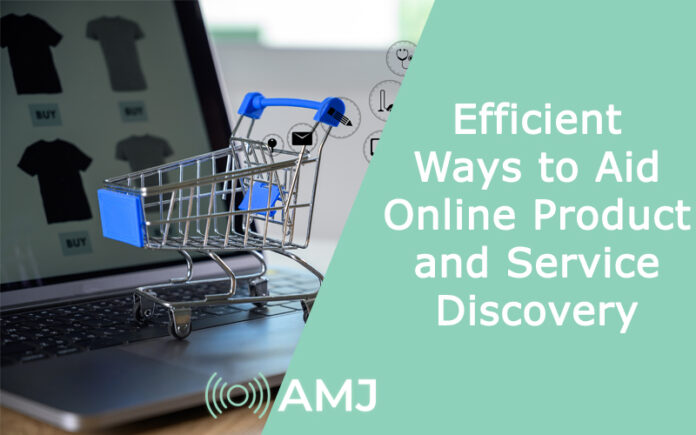The internet is vast and full of many distinct businesses, brands and services. This can make finding what you’re looking for an uphill battle – but it needn’t be. Below we’re going to look at three great ways you can quickly and simply find the products or services you seek.

Contents
Recommendation Engines
Every day we use algorithms to search for content, information, and goods we want. These are collectively referred to as recommendation engines, and they permeate many of the most popular sites and platforms used today. Recommendation engines break down into three categories. These are known as collaborative filtering, content-based filtering, and hybrid engines.
Collaborative filtering engines make suggestions based on user activity and the behavior of users which the algorithm identifies as sharing similarities with them. For example, if you watch a film on Netflix, that service will draw on its database of information to find what other users who enjoyed the film you watched then went on to watch. It will then suggest these titles to you.
Content-based filtering, on the other hand, sorts information into categories and aims to furnish recommendations to users based on a profile of their interests. These algorithms typically become more efficient the more you engage with them, as they have more opportunities to learn what you like. All social media feeds tend to use this type of engine.
Additionally, there are also hybrid systems that combine elements of both of these. Recommendation engines can be an extremely efficient way to discover new products or services, as they use big data to aggregate results based on user behavior.
Online Comparison Platforms (OCPs)
OCPs are distinct from general recommendation engines because they do not typically employ an algorithm on the front-end. Instead, they bring together the leading recommendations they have to offer for goods, services and platforms in a given sector. This implies a degree of editorial discretion, which can often lead to more effective recommendations than algorithms alone. Prominent examples include the Editor’s Choice segment of the Google Play Store. Here, the directory’s editor makes bespoke recommendations that they feel are uniquely worth drawing Android users’ attention to.

Elsewhere, OCPs operate in a huge array of sectors. For example, leading iGaming industry news resource PokerNews provides curated directories that draw on their journalistic authority in the field.
These are diverse yet comprehensive and are occasionally designed to cater to specific regions, such as, for example, a guide to the best Michigan casino sites available to access today. OCPs are also very popular in the insurance world, with large-scale platforms such as The Zebra and CompareTheMarket providing rich comparisons of insurance quotes on everything from automotive to house and life insurance.
Search Rankings
The most common way people search for information online is through search engines like Google and Bing. These platforms trawl the web for results that appear to match the search queries of their users.
Websites that consistently result in search conversions are typically ranked higher than others. In this way, it’s rare that the results you’re seeking are not going to come within the top 10 suggestions these platforms provide to you. What’s more, you can use an array of additional search parameters to fine tune your search results.












![Index of Money Heist [Season 1, 2, 3 & 4 – All Episodes, Cast and Plot] Index of Money Heist](https://www.asiamediajournal.com/wp-content/uploads/2021/05/Index-of-Money-Heist-3-100x70.jpg)